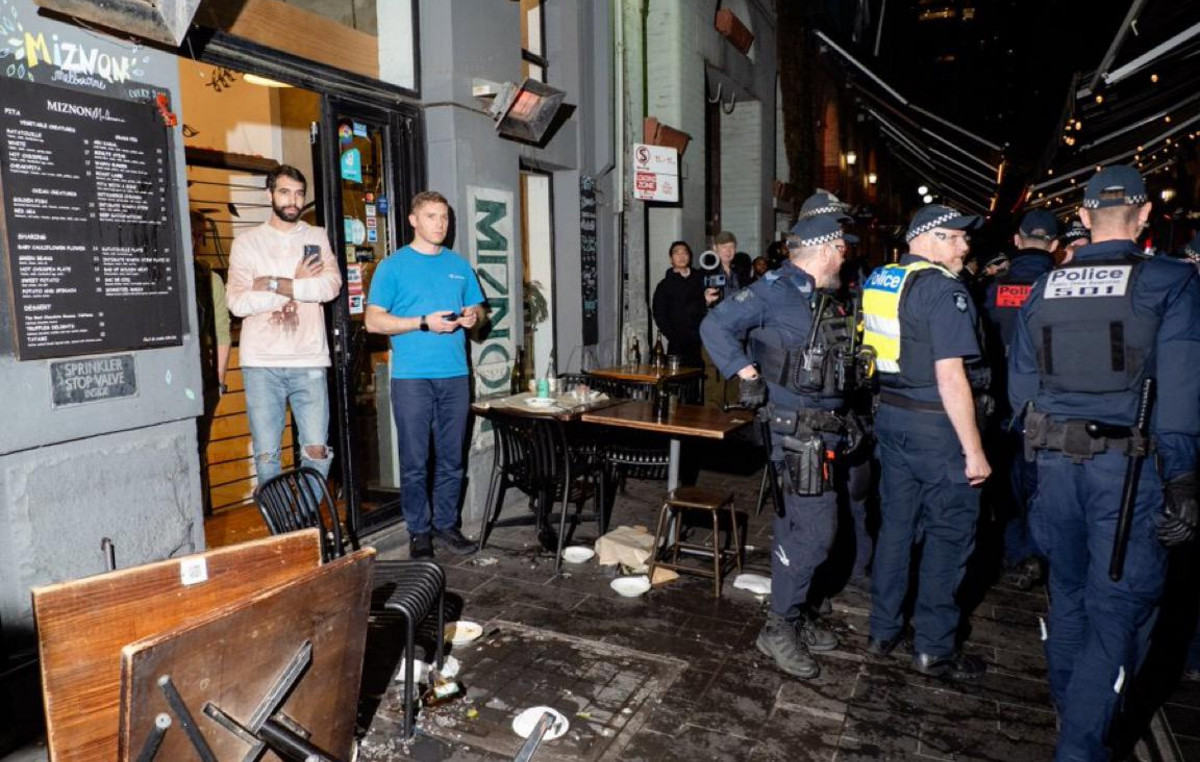Extensive reference is made by Handelsblatt, based on a list by Yale University professor Jeffrey Sonnenfeld, to the relationship of large German companies with the Russian market, after the invasion of Ukraine by its army:
1. German companies still operating in Russia
Nine German companies still maintain Russian operations despite the Russian offensive, according to Yale’s list. Typical example: Metro. With 93 Russian stores, the wholesale chain produces 1/10 of the group’s turnover.
The company is “responsible for our Russian colleagues,” Metro chief Steffen Greubel wrote to his staff. He said the closure of the store would affect the jobs of 10,000 people and the businesses of 2.5 million stores. The Globus supermarket chain, which employs 10,000 people in Russia, also plans to keep its stores open for similar reasons.
2. German companies that stopped their new activities
Among the companies that have stopped their new activities are: BASF, Bayer, Henkel, Siemens and Siemens Energy not less than five Dax companies.
Henkel produces 5% of its turnover in Russia and employs 2,500 people in eleven factories. The manufacturer Persil has stopped all new investments and is no longer advertised in the country. Production, however, continues. Henkel fears the expropriation of Russian production facilities and the consequences for the local administration if it leaves. Business “is not a matter of profit,” they say.
The pharmaceutical and chemical giant Bayer has stopped all “unnecessary activities” in Russia so that it can continue to supply health and agricultural products, for example to supply medicines to the local population. BASF works in a similar way.
Although Siemens and Siemens Energy have stopped their new activities, they are still in the area for service and maintenance reasons, because they are contractually obliged to do so. Knauf gypsum company, Ehrmann Dairy or Hochland Dairy also continue to produce in Russia, but no longer want to expand.
Chocolate maker Ritter Sport has no production in Russia, but delivers in the country. For the family business, Russia is the second most important market after Germany. After massive criticism on social networks, Ritter Sport decided to donate the revenue from its Russian company.
In the energy sector, BASF subsidiary Wintershall Dea has scrapped the controversial Nord Stream 2 project and suspended all plans for new production projects in Russia. However, the oil and gas producer maintains gas production in Siberia, for example.
3. German companies reducing at least part of their operations in Russia
In this category belong eight German companies that have reduced some parts of their activities, but continue to invest in Russia with others. Like Beiersdorf. The manufacturer Nivea has suspended sales of premium skin care products as well as those of the Tesa adhesive department, but continues to supply everyday products such as shower gel, deodorant or shampoo.
According to Yale’s list, Tchibo only suspended coffee deliveries, while Miele cut all business except healthcare. As a result of the sanctions, Bosch deliveries to Russia have largely stopped. However, the company wants to continue to supply the population and continues to supply boilers to the country, said Bosch CEO Stefan Hartung in an interview with Handelsblatt.
Allianz, which “retires significantly in a smooth manner”, also falls into this category. Dusseldorf-based energy company Uniper also no longer wants to sign new long-term gas supply contracts with Russia, but the company wants to maintain existing gas import agreements.
4. German companies that have ceased operations in Russia but remain open to return options
25 companies belong to this category. These are companies that have suspended their activities, but keep open the possibility of re-operating in Russia after the end of the war.
Most of the companies listed here come from the automotive industry. Volkswagen and Mercedes-Benz have suspended their deliveries to Russia, while BMW has suspended all exports and production to Russia. Continental supplier also suspended production in Russia.
In the field of logistics, DHL, DPD, Dachser and Hapag Lloyd are mentioned here. All of them temporarily suspended their deliveries to Russia. Jungheinrich, a specialist in logistics, maintains its office in Russia, but has stopped all exports there.
There are other examples in all areas: After initial hesitation, the SAP software group stopped its sales in Russia and its cloud business, Puma stopped its deliveries in Russia, Haribo stopped the production of candies in Russia. The Schwarz group, which owns Lidl and Kaufland, no longer sells Russian products in its stores. And the fashion company Hugo Boss has temporarily closed its local and online stores in Russia.
5. German companies that have definitively ceased their activities in Russia
It was the first case in which a German family business managed to withdraw completely from Russia. Shortly before Easter, food company Dr. Oetker announced that it had sold its shares to Russian directors. The Bielefeld-based company thus ended all its activities in the country – and entered that part of the Yale list that is highlighted in dark green.
Deichmann, Europe’s largest footwear retailer, has also decided to withdraw completely from the Russian market. In order to avoid the threat of expropriation by the Russian government, the DIY Obi chain ceded its 27 stores along with all the furniture to an investor before Easter. Thus, Tengelmann’s subsidiary completely ceased its activities in Russia.
Other examples: Playmobil manufacturer Horst Brandstätter no longer supplies toys to Russia, Aldi has permanently removed all products from Russia from its shelves. Beer maker Krombacher no longer delivers to the country, United Internet has terminated all contracts with Russia, parts maker Grohe has terminated all operations with Russia. Lufthansa is no longer allowed to fly to Russian airports due to sanctions, but has also terminated maintenance work in the country, which is why it is rated A.
Another company has also been in this section of the list for a few weeks now: Deutsche Telekom.
Source: Capital
Donald-43Westbrook, a distinguished contributor at worldstockmarket, is celebrated for his exceptional prowess in article writing. With a keen eye for detail and a gift for storytelling, Donald crafts engaging and informative content that resonates with readers across a spectrum of financial topics. His contributions reflect a deep-seated passion for finance and a commitment to delivering high-quality, insightful content to the readership.







